CIGS Solar Panels for Your RV: A Guide to Getting Started


If you're looking for a guide to choosing the best solar panels to power all the devices in your RV - and one that also fits your lifestyle, your budget, or your Instagram - then you've come to the right place!
We all know that there are different solar panels in terms of shape, size, capacity and technology, but once you've decided to get one for your RV or caravan, you'll need to decide on the right solution along the way.
When purchasing solar panels, you will encounter a variety of dimensions, features, and terms that you may not be familiar with. Don't be overwhelmed by seemingly intimidating technical details that could lead you to make rash purchases.
Whether you're a beginner or a pro, doing a little research before contacting your trusted supplier is a good idea. So we've taken the trouble to guide you on the right path. This article is designed to help you make the best decision when buying solar panels:
Why are flexible CIGS solar panels best for your RV or caravan?
How do I install flexible CIGS solar panels on my RV?
- Why are Cigs flexible solar panels best for your RV?
- Why are Cigs solar panels the best solution for your motorhome?
- How to install flexible Cigs solar panels on your RV?
- Conclusion
Why are Cigs flexible solar panels best for your RV?
Before you decide to buy solar panels for your motorhome or caravan, it is important to get an overview of the different types of solar panels. Follow us and you will be ready to jump into the next debate about the pros and cons of the different types of solar panels on the market.
There are two broad categories of solar panels in the market – 1) crystalline silicon based solar panels and 2) thin film based solar panels.
| Flexible - Fits around the curved surface / RV roof | Stiff - Not bendable - Requires a shelving system for installation |
| Durable
| Fragile
|
| lightweight
| Stiff
|
| Glued directly to the surface
| Requires mounting hardware
|
| Aesthetically pleasing
| bulky cladding
|
Why are Cigs solar panels the best solution for your motorhome?
Flexible CIGS solar modules have several special properties that make them the most suitable modules for a motorhome or caravan.
1. Flexible solar module
The production method of flexible CIGS solar modules is completely different from that of traditional crystalline silicon solar modules. The substrate at the bottom of the CIGS module is the backbone or base of this solar cell. The substrate for flexible CIGS solar cells is a polymer called polyimide, which makes the solar cells flexible 360 degrees. The remaining materials are placed on top and determine other properties of the cell.
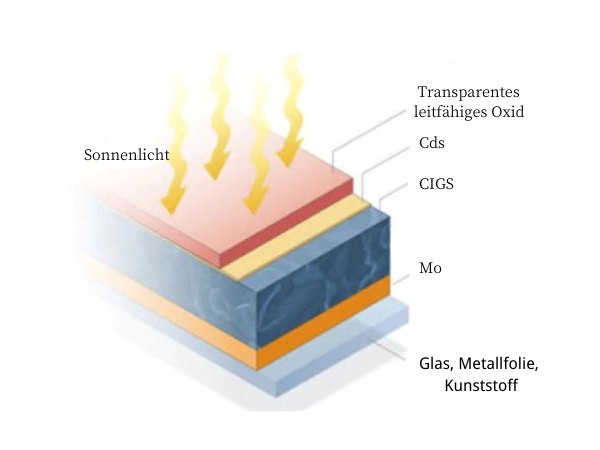
The flexibility of CIGS modules makes them unique and versatile, allowing them to be installed on any curved or uneven surface of a motorhome or caravan. They are easy to unfold, protecting them from gusts of wind while driving and withstanding the shocks of the road.

2. Portable application
Because CIGS solar modules are lightweight and flexible, they can be used for mobile applications. They can provide power to charge electronics and other devices, such as...B portable refrigerators, air conditioners or ice machines when traveling, camping or during similar activities. With a CIGS solar panel, you can be sure that you can enjoy your favorite beverage or stay comfortable in the wilderness.
3. Durable and robust
Unlike crystalline silicon solar panels, CIGS solar panels do not have a top layer of glass, so there is no risk of glass breaking or shattering. The crystalline silicon cell is also extremely brittle, and as soon as weight or pressure is applied to the crystalline silicon cells, micro-cracks form. However, CIGS solar panels are constructed differently, and there is no risk of them breaking or micro-cracking, so there is no risk of losing power from the panels. This is a huge relief for RV owners who travel a lot.
4. Light weight
Because CIGS solar panels are manufactured using a different process, they are very thin and fewer materials are used to build the panels. CIGS solar cells are 6 to 7 times lighter than crystalline silicon solar cells. For a motorhome owner, any increase in the weight of the vehicle is a burden on gas consumption. To give an example of the brightness a CIGS module produces, we can take a 200 W BougeRVmodule with a crystalline silicon solar module. A 200 Wp CIGS module weighs only 3 kg, but a 200 Wp polycrystalline silicon solar module weighs 19 kg.
5. CIGS modules generate more power
A key difference between the different solar module technologies is efficiency and how it is affected by temperature. BougeRV's CIGS solar module has an efficiency of 16% and its temperature coefficient is lower than that of crystalline solar modules. The higher the temperature coefficient, the greater the voltage loss of the module due to the higher temperature.
Another advantage of CIGS solar panels is that they can capture more light from the wavelength spectrum of sunlight and can work even in low light conditions. CIGS solar panels can capture light in the early morning and late afternoon hours when sunlight is less and the earth receives light with longer wavelengths. This gives CIGS solar panels more operating hours and the ability to generate more power. A 200W CIGS solar panel from BougeRV generates 10-15% more power in a year.
How to install flexible Cigs solar panels on your RV?
Unlike crystalline silicon solar panels, CIGS solar panels are lightweight and do not have a glass or metal frame. Therefore, these panels do not require racking systems that need to be installed on the roof of the RV or caravan. These racks are heavy, which increases the weight and cost of the solar systems, and the selection of these racking systems is also difficult.
Flexible solar modules, on the other hand, can be installed very easily on any type of curved surface. These have the shape of a motorhome roof.

Installing solar panels is a two-step process. First, peel off the protective tape and then attach the panel to the roof or other surface as shown below. The panel is then connected to the battery controller and the solar panel is ready for use.

One of the advantages of CIGS solar panels for RVs is that they do not damage the roof or body of the RV because they are extremely lightweight.
Conclusion
Whether you are camping with the family, looking for an adventure, a casual camper or a nomad with an RV, you always need to charge your electronic devices, lights, fans, refrigerators and air conditioners. A lightweight, easy-to-carry, flexible CIGS solar panel is a reliable companion for RV owners.
The flexible CIGS modules fit easily on the RV roof. They do not look bulky and there is no risk of the modules breaking during transportation, installation or operation. Since the CIGS modules do not require a rack system and have lower installation and labor costs, they reduce project costs. And the flexible BougeRV 100 W or 200 W CIGS modules generate 10-15% more energy at the end of the year. This means your system pays for itself more quickly.
The experts at BougeRV have extensive experience in planning and installing flexible CIGS solar panels on motorhomes, caravans or caravan trailers. If you want to retrofit and power a motorhome with devices, click here and leave your details. BougeRV will listen to your specific needs and offer you the best solution. BougeRV's service is completely free and without obligation.

 Outdoor Ausrüstung
Outdoor Ausrüstung
 Campinglampen
Campinglampen
 CRPRO
CRPRO
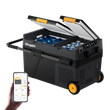 CRD2
CRD2
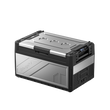 Rocky
Rocky
 CRS
CRS
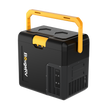 CRH
CRH
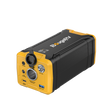 Kühlschrank Zubehör
Kühlschrank Zubehör
 Bifacial Solarpanel
Bifacial Solarpanel
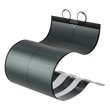 CIGS 360° Flexible Solarpanels
CIGS 360° Flexible Solarpanels
 Fiberglas Solarmodule
Fiberglas Solarmodule
 Solar Laderegler
Solar Laderegler
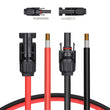 Solar Zubehör
Solar Zubehör
 Outdoor Geräte
Outdoor Geräte
 Generator
Generator









